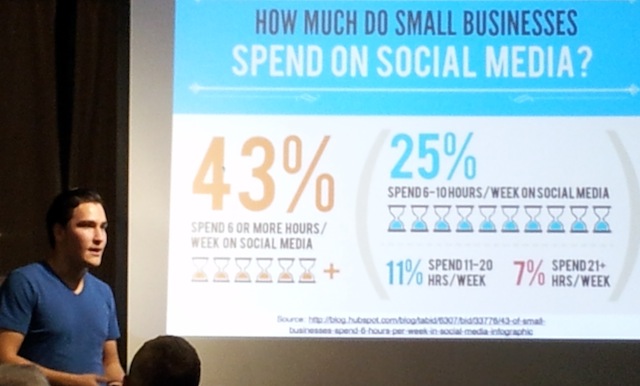Introduction
In the digital era, tracking someone’s location has become both easier and more alluring. The motivations behind wanting to monitor someone’s whereabouts vary widely—from parents ensuring their children’s safety to partners seeking assurance about their significant other’s location, and even friends coordinating meetups. Despite the convenience, this practice raises crucial ethical and legal issues regarding privacy and consent.
This article explores the methods for finding someone’s location on Google Maps without their awareness. While understanding these techniques can be educational, it is essential to underline the importance of privacy and the necessity of obtaining consent. Unauthorized tracking not only breaches ethical boundaries but may also lead to significant legal repercussions. Our goal is to shed light on these methods while stressing the need for responsible and respectful behavior.
1. Overview of Google Maps Location Sharing
The Mechanism Behind Location Sharing
Google Maps provides a comprehensive suite of features that includes real-time location sharing. Users can share their precise location with selected individuals, allowing them to follow their movements in real-time. To initiate location sharing, users need to access the Google Maps app, tap on their profile icon, choose ‘Location sharing,’ and then select the individuals they want to share with. They can set the duration for which their location will be visible, ranging from a brief period to an indefinite timeframe. This feature is particularly useful for coordinating plans or ensuring safety.
Privacy Considerations
While this location-sharing feature is practical, it introduces significant privacy concerns. Tracking someone’s location without their explicit consent is a breach of their privacy rights. Consent is a cornerstone of ethical behavior and should always be sought before utilizing any location-sharing functionalities. Respect for privacy and adherence to ethical standards are fundamental in any interaction involving location tracking.
2. Techniques for Locating Someone on Google Maps Without Their Knowledge
2.1 Utilizing Google Location Sharing
Understanding the Feature
Google Location Sharing is intended to facilitate the sharing of real-time location data with trusted contacts. To use this feature, one must select “Location sharing” from the Google Maps menu and choose the contacts with whom they wish to share their location. The duration of visibility can be customized, allowing users to control how long their location remains accessible.
Accessing Previously Shared Locations
If an individual has previously shared their location with you and has not revoked this permission, you can still view their current location through Google Maps. To do this, open the app, navigate to “Location sharing,” and select the person whose location you want to monitor. This approach relies on the assumption that the individual has forgotten about the shared access, which may lead to ethical concerns if they are unaware that their location is still being tracked.
2.2 Investigating Google Timeline
What Is Google Timeline?
Google Timeline is a feature that tracks and records the locations a user has visited, provided that they have enabled location history on their Google account. This feature is accessible through both the Google Maps app and its web version. It provides a comprehensive log of past locations, complete with timestamps and detailed routes.
Accessing Google Timeline
To view someone’s Google Timeline, you must have access to their Google account credentials and their device. This method is highly intrusive and can severely breach privacy. Gaining access to someone’s account without permission is not only unethical but also illegal. It involves either knowing their password or accessing their device to authorize the login, which represents a significant invasion of privacy.
2.3 Exploiting Linked Google Accounts
Family Link & Trusted Contacts
Google offers services like Family Link and Trusted Contacts that facilitate location sharing among family members and trusted individuals. Family Link is primarily aimed at parents who want to manage their children’s digital activities, including tracking their location. Trusted Contacts allows users to share their location with selected friends and family members for safety purposes.
To use Family Link, download the app, create a family group, and manage your child’s account, including enabling location tracking. Trusted Contacts work similarly by allowing users to designate individuals who can request their location during emergencies. Misusing these features for unauthorized tracking is a violation of trust and privacy and contradicts the intended use of these tools.
2.4 Third-Party Mobile Tracking Applications
Exploring Third-Party Apps
Various third-party applications offer advanced location-tracking capabilities, such as mSpy, FlexiSPY, and others. These apps often require installation on the target device and can operate discreetly, making them difficult to detect by the user.
Ethical and Security Risks
Using third-party tracking apps without consent presents significant ethical issues. Such practices constitute a severe invasion of privacy and are often illegal. Additionally, these apps may introduce security risks, as they could expose personal data to malicious actors. Installing such apps without permission can result in legal consequences and irreparable damage to relationships.
3. Legal and Ethical Considerations
Legal Framework
In the UK, the Data Protection Act 2018 and the Investigatory Powers Act 2016 govern the use of personal data and surveillance. Similarly, in the US, laws such as the Electronic Communications Privacy Act (ECPA) and various state-specific regulations address privacy concerns related to tracking. Unauthorized tracking can lead to severe legal consequences, including criminal charges, fines, and imprisonment. It is essential to understand the legal framework in your jurisdiction before attempting any form of location tracking.
Ethical Reflections
Beyond legal considerations, the ethical implications of tracking someone without their consent are significant. Such actions undermine trust and can inflict emotional distress. Ethical behavior necessitates respecting others’ privacy and autonomy. Engaging in unauthorized tracking reflects poorly on one’s character and can have lasting effects on personal and professional relationships.
4. Consequences of Unauthorized Tracking
Legal Repercussions
Unauthorized tracking can result in serious legal consequences. Violations of privacy laws can lead to criminal charges, civil lawsuits, and substantial financial penalties. The legal landscape varies by jurisdiction, but the risks are considerable. Even if one avoids legal repercussions, the act of unauthorized tracking can still lead to significant personal and professional consequences.
Impact on Relationships
Trust is a vital component of any relationship. Secretly tracking someone’s location can cause irreparable damage, eroding trust and creating conflict. The person being tracked may experience significant emotional distress, leading to feelings of betrayal and invasion of privacy. This can ultimately result in the breakdown of relationships and create long-term emotional scars.
Technical Risks
Unauthorized tracking methods can expose both parties to technical risks. These methods may involve installing software that could be exploited by hackers to steal personal information or perform malicious activities. The use of third-party tracking apps can compromise the security of devices, leading to potential data breaches and other cybersecurity threats.
5. Ethical Alternatives to Discreet Tracking
Promoting Open Communication
The best way to address concerns about someone’s location is through open and honest communication. Discuss your concerns directly and seek a mutual understanding. Transparent communication fosters trust and allows for the development of solutions that respect everyone’s privacy. By addressing issues openly, you can avoid the pitfalls of unauthorized tracking and build stronger, more trusting relationships.
Mutual Location Sharing Agreements
For safety and convenience, mutually agreed-upon location sharing can be beneficial. Both parties can agree to share their locations at specific times or under certain conditions. This ensures that location sharing is transparent and consensual, enhancing trust and cooperation. Such agreements can be particularly useful for parents monitoring their children, partners wanting to stay connected, or groups of friends coordinating plans.
Utilizing Transparent Apps
Several apps are designed to facilitate location sharing with full consent from all parties involved. For instance, Life360 offers real-time location tracking with the agreement of everyone involved. Using these apps transparently ensures that all parties are aware of and agree to the terms of location sharing. These tools can promote safety and coordination without compromising privacy, as they are designed to be used with mutual consent.
Understanding Location Tracking Features
It’s also important to understand the features and limitations of the tools you use for location tracking. Apps and services can vary significantly in terms of functionality, security, and user control. By familiarizing yourself with these features, you can make more informed decisions about how to use location tracking responsibly and ethically.
Navigating Privacy Settings
Take the time to explore and adjust privacy settings on your devices and apps. This can help ensure that your location data is shared only with those you trust and under conditions you control. Regularly reviewing and updating your privacy settings can prevent unauthorized tracking and protect your personal information.
Seeking Professional Advice
If you are uncertain about the ethical or legal implications of location tracking, consider seeking professional advice. Consulting with legal or ethical experts can provide valuable insights and help you navigate complex issues related to privacy and consent. Professional guidance can help ensure that your actions align with legal requirements and ethical standards.
Conclusion
While the ability to find someone’s location on Google Maps without their knowledge is technically achievable, it involves significant ethical and legal considerations. Technology offers powerful tools for location tracking, but these tools must be used with respect for privacy and consent. Unauthorized tracking breaches ethical standards and exposes individuals to potential legal and technical risks.
Respecting privacy and fostering trust should always be prioritized. Ethical behavior involves transparent communication and mutual agreements, ensuring that location sharing is consensual and respectful. Always seek permission and communicate openly about location sharing to maintain trust, protect privacy, and ensure security. By adhering to these principles, you can navigate the complexities of location tracking responsibly and maintain positive, trusting relationships.


